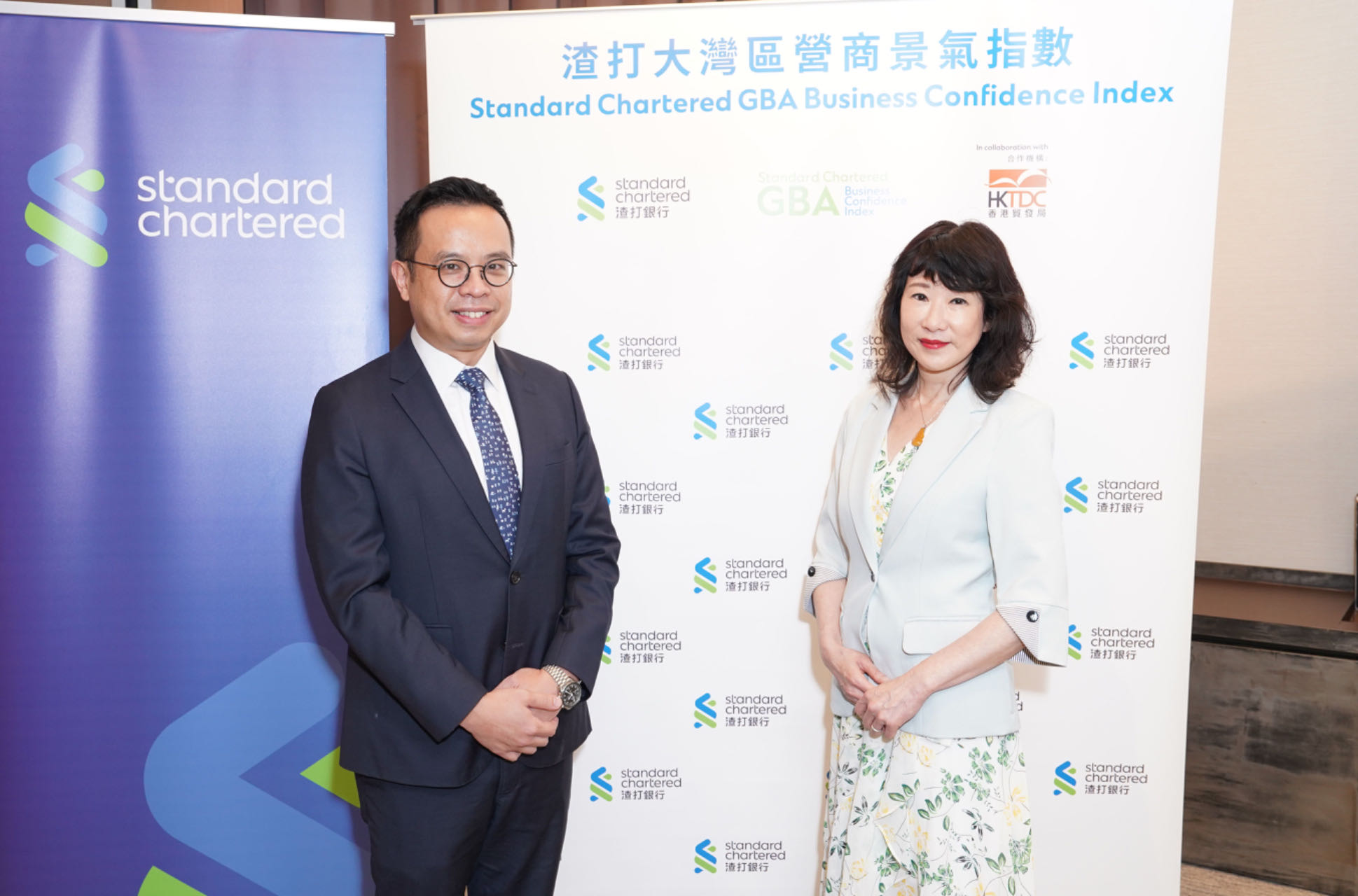
Business confidence across the Guangdong-Hong Kong-Macao Greater Bay Area hit an 11-quarter high in the first quarter, driven by an uptick in business activities, but enterprises remain cautious about the outlook, according to a quarterly survey released on Tuesday.
The survey, conducted by Standard Chartered Hong Kong and the Hong Kong Trade Development Council, revealed that the current performance index under the GBA Business Confidence Index, jumped to 54.3 in the first three months of the year, a 2.9 point increase compared to the previous quarter. Growing earnings, new orders, and sales fueled the upturn.
The strong demand and production during the first quarter can be attributed to several factors, including the front-loading of March production to February due to this year’s late Spring Festival, the rising need for equipment and technological upgrading, and robust consumer spending during the holiday
The strong demand and production during the first quarter can be attributed to several factors, including the front-loading of March production to February due to this year’s late Spring Festival, the rising need for equipment and technological upgrading, and robust consumer spending during the holiday.
The survey, which interviewed over 1,000 companies across various sectors in the GBA, aims to gauge business sentiment and economic prospects in the region. While a GBAI above 50 suggests a positive outlook, a reading below 50 indicates that businesses remain wary of potential headwinds.
Despite the positive sentiment, Standard Chartered senior economist Kelvin Lau Kin-heng noted that “the prevailing recovery momentum still looks fragile”, with room for more policy support, including monetary easing, to continue to narrow the output gap and dispel deflation expectations.
The survey’s expectation index, a sub-index under the GBAI, dipped 0.3 points to 54 in the same quarter, driven by the pessimistic outlook on raw materials inventory and financing scale.
Hong Kong’s current performance index under the GBAI plunged from 50 in the previous quarter to 43.3, the only index among the 11 cities in the GBA that dropped below 50.
Irina Fan Yuen-yee, director of research at the Hong Kong Trade Development Council, said, “The financial industry is grappling with growing uncertainties. As an international financial hub, Hong Kong feels these impacts more acutely.”
The GBAI current performance index on the financial service sector fell to 42.2 in the first quarter, marking a 10.2 point quarter-on-quarter drop, the largest decline across all industries.
The survey covered the manufacturing and trading, retail and wholesale, financial services, professional services, as well as innovation and technology sectors. The reading on the retail and wholesale sector climbed the most among those, from 50.5 in the fourth quarter of last year to 53.9 in the first quarter.
Fan also noted that the strong US dollar, to which the Hong Kong dollar is pegged, has diminished Hong Kong’s export competitiveness and taken a toll on local businesses, as many residents spend abroad.
The Standard Chartered Bank expects the US Federal Reserve to begin cutting interest rates as early as July, with a subsequent cut anticipated in the fourth quarter. The bank has adjusted its forecast for the total number of rate cuts this year from four to two, predicting continued reductions into early 2026.
Lau noted the economic benefits of these rate cuts, such as expanded corporate borrowing and consumer spending, will have been delayed.


